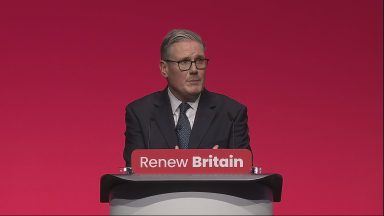Concerns have been raised over the lack of guidelines for stroke treatment in Scotland.
It comes after it was confirmed that the Scottish Intercollegiate Guidelines Network (SIGN) guidelines on stroke were withdrawn in 2020, due to being over a decade old.
Scottish Liberal Democrat leader Alex-Cole Hamilton had written to health secretary Humza Yousaf to ask him when the new guidelines will be published.
In his response, Yousaf said that the updated guideline is expected to be published in February next year.
He explained that SIGN had recommended that healthcare professionals instead look to other evidence-based guidelines that are up to date in order to inform good practice.
And Yousaf pointed to the National Institute of Health and Care Excellence (NICE) evidence search which he said includes trusted sources from a wide range of organisations.
Cole-Hamilton warned of a “real risk” to people who may end up receiving different standards of care in different parts of the country.
“Patients will be deeply concerned to hear that there are no guidelines for stroke treatment currently in place,” he said.
“As medical knowledge advances there will always be a need to update guidance but there is no reason why doctors and their patients should be left with a significant gap between the expiry of one set of guidelines and the implementation of the next.
“In the meantime, the health secretary is telling doctors to just google it. That imposes a real risk that people will receive different standards of care in different parts of the country.
“Health care practitioners need new and updated guidelines urgently, they cannot wait another year.”
He added: “These failings are emblematic of a government who have missed the opportunity to deliver a solid NHS recovery plan, voted down Scottish Liberal Democrat plans for a staff burnout prevention strategy, and now is telling practitioners to rely on their own internet research while they wait another year for guidelines.”
Health secretary Humza Yousaf insisted that guidelines are intended as an aid to clinical judgement.
“Any attempt to undermine the professionalism of Scotland’s clinical staff is to be deplored,” he said.
“We are grateful to all staff who have worked so hard to continue to deliver care during such challenging times and remain focused on ensuring that people who have had a stroke or Transient Ischaemic Attack receive the best possible care as quickly as possible to enable them to live longer, healthier and independent lives.”
“Guidelines are intended as an aid to clinical judgement, not to replace it.
“The ultimate decision about a particular clinical procedure or treatment will always depend on each individual patient’s condition, circumstances and wishes, and the clinical judgement of the healthcare team.
“Clinicians are well experienced in utilising good-quality evidence-based guidelines and locally agreed evidence based clinical pathways, such as the 5th edition of National Clinical Guideline for Stroke or guidelines from National Institute for Health and Care Excellence (NICE).”
Follow STV News on WhatsApp
Scan the QR code on your mobile device for all the latest news from around the country


 iStock
iStock
























